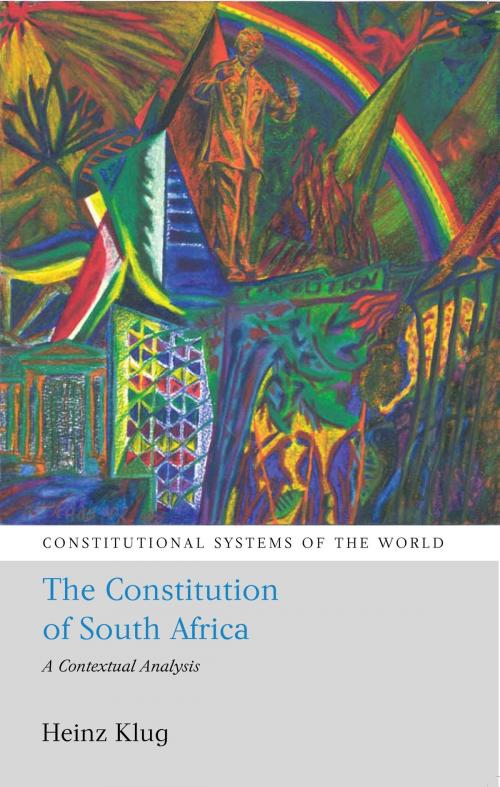The Constitution of South Africa
A Contextual Analysis
Nonfiction, Reference & Language, Law, Constitutional| Author: | Heinz Klug | ISBN: | 9781847317414 |
| Publisher: | Bloomsbury Publishing | Publication: | July 15, 2010 |
| Imprint: | Hart Publishing | Language: | English |
| Author: | Heinz Klug |
| ISBN: | 9781847317414 |
| Publisher: | Bloomsbury Publishing |
| Publication: | July 15, 2010 |
| Imprint: | Hart Publishing |
| Language: | English |
South Africa's 1996 'Final' Constitution is widely recognised as the crowning achievement of the country's dramatic transition to democracy. This transition began with the unbanning of the liberation movements and release of Nelson Mandela from prison in February 1990. This book presents the South African Constitution in its historical and social context, providing students and teachers of constitutional law and politics an invaluable resource through which to understand the emergence, development and continuing application of the supreme law of South Africa. The chapters present a detailed analysis of the different provisions of the Constitution, providing a clear, accessible and informed view of the constitution's structure and role in the new South Africa. The main themes include: a description of the historical context and emergence of the constitution through the democratic transition; the implementation of the constitution and its role in building a new democratic society; the interaction of the constitution with the existing law and legal institutions, including the common law, indigenous law and traditional authorities; as well as a focus on the strains placed on the new constitutional order by both the historical legacies of apartheid and new problems facing South Africa. Specific chapters address the historical context, the legal, political and philosophical sources of the constitution, its principles and structure, the bill of rights, parliament and executive as well as the constitution's provisions for cooperative government and regionalism. The final chapter discusses the challenges facing the Constitution and its aspirations in a democratic South Africa.The book is written in an accessible style, with an emphasis on clarity and concision. It includes a list of references for further reading at the end of each chapter.
South Africa's 1996 'Final' Constitution is widely recognised as the crowning achievement of the country's dramatic transition to democracy. This transition began with the unbanning of the liberation movements and release of Nelson Mandela from prison in February 1990. This book presents the South African Constitution in its historical and social context, providing students and teachers of constitutional law and politics an invaluable resource through which to understand the emergence, development and continuing application of the supreme law of South Africa. The chapters present a detailed analysis of the different provisions of the Constitution, providing a clear, accessible and informed view of the constitution's structure and role in the new South Africa. The main themes include: a description of the historical context and emergence of the constitution through the democratic transition; the implementation of the constitution and its role in building a new democratic society; the interaction of the constitution with the existing law and legal institutions, including the common law, indigenous law and traditional authorities; as well as a focus on the strains placed on the new constitutional order by both the historical legacies of apartheid and new problems facing South Africa. Specific chapters address the historical context, the legal, political and philosophical sources of the constitution, its principles and structure, the bill of rights, parliament and executive as well as the constitution's provisions for cooperative government and regionalism. The final chapter discusses the challenges facing the Constitution and its aspirations in a democratic South Africa.The book is written in an accessible style, with an emphasis on clarity and concision. It includes a list of references for further reading at the end of each chapter.















